Uncovering the Truth About Anger with Peter Sacco
Most men struggle with anger daily. Our tempers flare at work and at home with our wife and kids. Some of us are like Bruce Banner. Some of us turn into the Incredible Hulk. Canada’s psyche doctor, Peter Andrew Sacco tells us the secrets to where anger comes from, how to manage it, and so much more. You don’t want to skip this mind-blowing episode!
We are full-time workers, dads, and husbands. As men, it’s sometimes hard to control our anger. Discovering what type of temperament we have will help us find better ways to manage our anger, improve our relationships, and set an example for our kids on how to deal with their emotions too.
Peter Sacco
Peter Sacco, author of What’s Your Anger Type? is a psychology professor, a former private practitioner and is a regularly featured guest on television and radio. He is also an award-winning executive producer and has hosted many documentaries on relationships, psychological issues, and children’s issues. Peter Sacco has done extensive work in support groups and in anger management, especially with dads who are abusive towards kids and spouses.
Anger is a normal
Anger is a normal emotion. It’s how we deal with it that can be destructive.
Anger makes a person seem more authoritative and powerful, but the truth is that people with an anger problem actually feel they have no control in their lives. A lot of this aggression comes from unresolved issues in childhood and from shame or rage from being rejected as a kid.
Anger can be addictive
Anger is like a drug. When a person gets incensed, they experience an adrenaline rush. Being angry gives the sensation of dominance and control. It overpowers the fear that lies beneath it and gives a person a sense of power because it’s a stronger emotion than depression.
Is there hope for men with anger issues?
Some men who’ve come from a chaotic childhood feel doomed. They believe they’re broken and can’t be fixed. But Peter Sacco says there is tremendous hope for people with anger issues, but they have to do the work.
“You’ve got to want to be the change in your own life”
The Anger Cycle
Just like a soldier who has experienced PTSD, a person with a traumatic or abusive past might cope with unresolved emotions in different destructive ways. Some may use drugs and alcohol, some might vent their rage on certain races, others will withdraw or play the victim.
“Today’s catchers are tomorrow’s pitchers.”
A person who has anger issues will be more likely to take it on one his family. If your relationships fall apart and your work life is full of turmoil, the common denominator is you. It may be time to seek help.
Anger and bullying
Bullied kids lack self-esteem and confidence. They suffer from anxiety and depression. Some overcome it through counseling and become normal. Some cope by learning to be helpless and withdraw. Others develop a superiority complex and become bullies themselves, using aggression, rage, or passive aggression on others.
Why Kids are Suffering from Anxiety and Depression
Parents spend 2.5 to 6.5 minutes talking to their kids each day. In this small amount of time, the communication is usually corrective or punitive. It’s not at a deep intimate level because parents shy away from intimacy from their kids. ADHD has gone up. Divorce rates have risen. Peter Sacco believes it’s this lack of intimacy that’s more responsible than toxins in the environment or ingredients in food. Communication is the key.
Tips for improving communication with your kids
- How to start the conversation – If you feel uncomfortable speaking with your kids, find a situation where you’re most comfortable. Dinner is the best and most traditional forum for families to talk. Sit at the table. Make your kids accountable. Every day, ask them to give five things they’re grateful for. Then tell them to talk about one or two things they didn’t like. This will open up communication.
- Don’t start out questions with WHY – “Why” pushes someone in a corner. Be a facilitator, don’t treat kids as miniature adults. Don’t say why was your day bad? Say, if your day could go anyway you wanted, what would that be?
- Be more creative with questions – Do not be so direct. Maybe some things they’re facing will come out.
- Make yourself the go-to guy – Fathers are the breadwinners, and many feel that as long as they provide for their children, they’re doing their job as a parent. Most dads will plan adventures or bond over sports, but these activates focus on the event, not the father/child relationship. Dads should sit down with their kid and ask, “I’m Dad and you’re my child – let me ask you a question. What do I mean to you as a father? How do you see me? The all-knowing problem solver? Nagger? Coach? Disciplinarian? Teacher? How can I be a better dad?”
- How to talk about bullying – Kids won’t talk about being bullied because they’re afraid their parents will be ashamed of them. If you suspect bullying, don’t think that nothing’s happening and wait for it to go away on its own. It will wreck a child’s self-esteem. It’s crucial for kids to know that bullying happens in all walks of life. There is nothing to be ashamed of and that they can talk to you about it.
When Dads Get Angry
Even on our best days, our patience will run out. Peter Sacco says that the best way to communicate anger is to tell your kids you’re not feeling well. Tell them you just need a few moments. Instead of making it worse, treat anger like you have an upset stomach or like you’re going to vomit. You don’t want to talk about it. You want to be left alone. You’re not lying by saying you’re not feeling well because anger is a feeling. In a half hour, the emotions pass, and you’ll be in rational mindset to talk.
Resources
==>NEW!!<== Grab a copy of The Dad’s Edge AUDIOBOOK on iTunes or Audible
GRAB A COPY OF THE DAD’S EDGE HERE
Join our Dad Edge Group on Facebook Request Entry Here
We have new Dad Edge T-Shirts! Grab one HERE
Download a free chapter from: THE DAD’S EDGE on UNLIMITED PATIENCE HERE
Check out this free resource on: CONNECTION WITH YOUR SPOUSE
Download this free resource on: CONNECTION WITH YOUR KIDS
Links
- Amazon Bestselling Book: The Dad’s Edge – 9 Simple Ways to Have: Unlimited Patience, Improved Relationships, and Positive Lasting Memories
- Larry’s New Course: The Dad’s Edge – 6 Strategies to Achieve: Unlimited Patience, Improved Relationships, and Positive Lasting Memories
- Larry’s Twitter Page
- Larry’s Facebook Page
- Larry’s Instagram Page
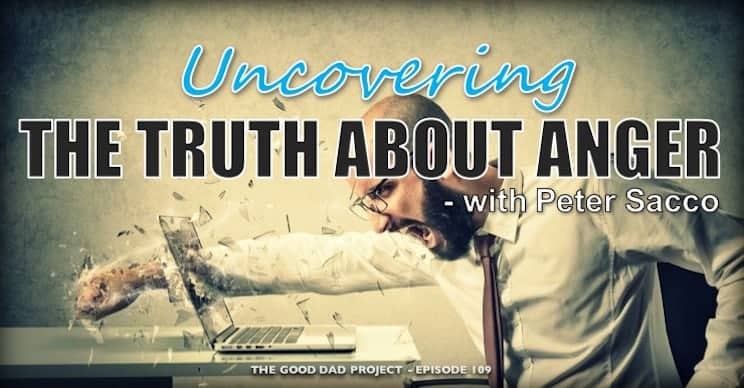


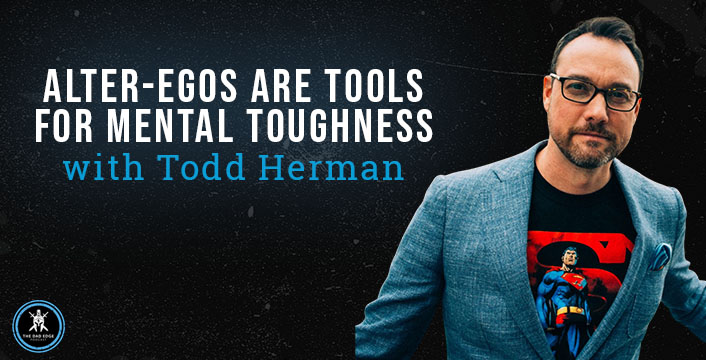
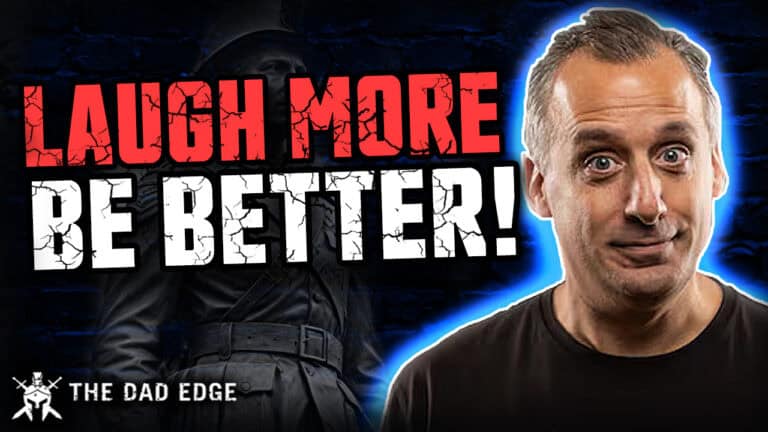
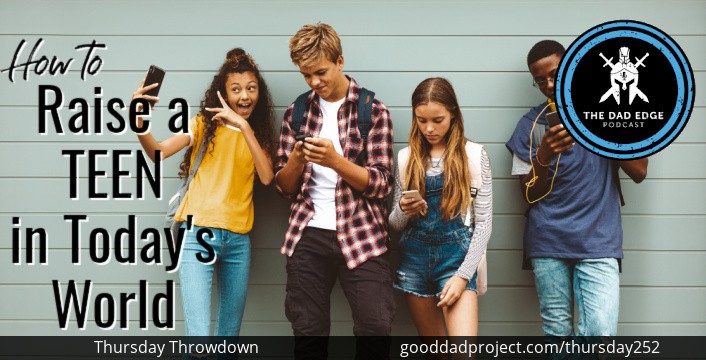


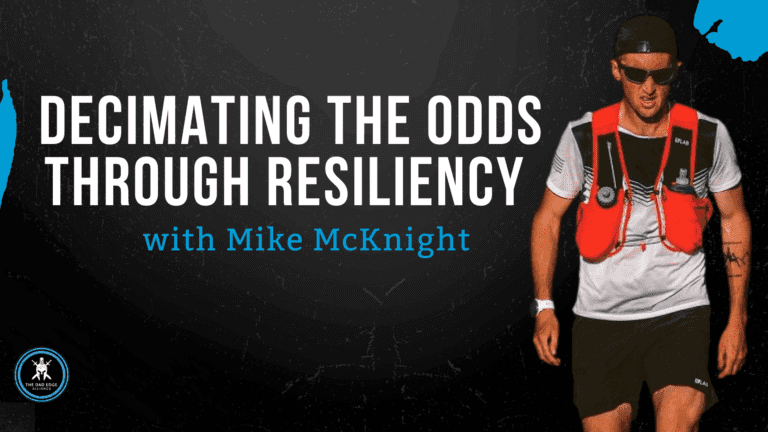


Larry,
I’ve only been a dad for two months but there are foster kids in my life that I am a father figure for. So I try to apply a lot of the principles and lessons from your podcast And have listened for over a year.
In today’s anger episode you and Peter touched on ways to structure and ask more effective questions of your kids to create a better dialogue. I have heard these strategies on your podcast before and have attempted with only poor results. What has worked for me is an application of the old adage that if you want someone to smile, don’t tell them or ask them, Simply Smile first. So when asking the foster kids how their day went, or what part was their favorite, etc went nowhere. I just started talking about my own day, I tell them the most vanilla, bland version, but with a lot of detail. Beacuse I don’t want them to feel their story is going to be measured against mine, but I still want to give them a good format to tell their own story, and they do, nearly everytime.
It’s a small sample size, I know, but I had to share this strategy. I really get a lot of value from your efforts and appreciate the impact you’ve had on my life. And when this topic of asking better questions came up I couldn’t just talk back to my radio anymore I had to chime in.
I can’t thank you enough, keep up the great work.
Joshua Clark
Fathers are the breadwinners? What is this guy living in the 1950s? As soon as we get real about our roles and stop pretending that we’re some kind of superheroes, we can start being real dads.